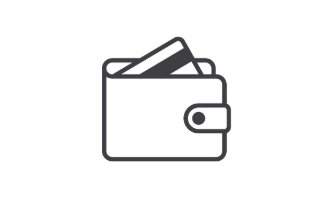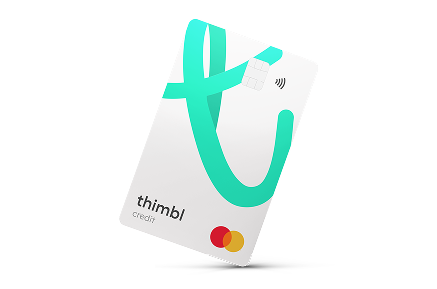Credit Cards for the Self-Employed
Cara Bradley | November 28th, 2024

As of August 2024, there were estimated to be around 4.23 million self-employed workers in the UK. If you’re one of them and have asked, ‘can self-employed people get a credit card?’, our guide could help you find the answers you’ve been looking for.
Is it hard to get a credit card when self-employed?
When applying for a credit card, it’s important to bear in mind that credit providers may view a self-employed worker with an inconsistent income as a higher lending risk.
In addition, if you’re new to working for yourself, you could find it trickier to be accepted for a credit card if your business has only been up and running for a short while and you have limited financial information available for your new venture. As a responsible lender, a credit card provider has an obligation to make sure any borrowing is affordable for your circumstances.
Your chance of being approved for a credit card as a self-employed person may be improved if you have a good credit score. A good credit score could suggest that you manage your borrowing responsibly and are more likely to make your repayments on time each month. However, a good credit score by itself does not guarantee you’ll be accepted for a particular credit card; you will also need to meet the provider’s specific eligibility criteria.
Are there specific credit cards for self-employed people?
No, there are currently no specific credit cards for self-employed workers.
Some credit card providers will consider applications from people who are self-employed, whereas others may specify within their eligibility criteria that applicants must be employees in receipt of a regular wage or salary.
You should always check that you match the individual credit card provider’s eligibility criteria before you apply. Eligibility will vary between providers, but applicants are usually required to be over the age of 18; a UK resident; and have a UK bank account with a valid debit card. Some credit card providers will also ask you to provide at least 3 years’ worth of UK address history on their application form.
Credit cards for the self-employed: using an eligibility check
Some credit providers allow you to check your eligibility for a credit card before you apply; this is a useful way of finding out how likely you are to be approved for a credit card if you go on to make a full application. An eligibility check is usually carried out using soft search technology, which has no impact on your credit score. A soft search will only be visible on your credit file to you and the company who carried out the check.
If you go on to make a full application with a credit card provider, a hard search will be carried out by that company. A hard search will remain on your credit file for up to 12 months and undergoing multiple hard searches within a short period of time could negatively affect your credit score.
Could I get a thimbl card if I’m self-employed?
You can check your eligibility for a thimbl Credit Card if you’re self-employed and:
- Are between the ages of 18 and 70;
- Are a UK resident with at least 1 year's UK address history;
- Have a monthly net income of at least £800;
- Have an active credit account that has been open for a minimum of 12 months; and
- Do not already hold a Zable credit card.
Lendable Ltd is unable to consider applications from anyone who has declared bankruptcy or is on an individual voluntary agreement (IVA).
The thimbl Credit Builder Credit Card comes with a personalised starting credit limit of up to £2,000. Checking your eligibility takes just 60 seconds and will not harm your credit score.*
*If our eligibility checker reveals that you have been pre-approved for a thimbl credit card you will be redirected to our partner, Zable, to complete your application. Please be aware that pre-approval does not guarantee acceptance.
Zable is a trading style of Lendable Ltd. If you choose to apply, an affordability check will be carried out by Zable. A hard search will only be completed once you sign your legal documents and accept your thimbl card. A hard search will remain on your credit file for up to 12 months and multiple hard searches could have a negative impact on your credit score. Any credit obtained upon successful application will be provided by Lendable Ltd.
What information will I need to provide when applying for a credit card as a self-employed worker?
When you apply for a credit card as a self-employed worker, the credit provider may ask you to send them some documents. The paperwork you could be asked to supply may vary between providers, but could include:
- Proof of income. This could be in the form of a tax return(s), bank statement(s), or profit and loss statement(s).
- Your business details, such as the HM Revenue and Customs (HMRC) registration number, if you have one.
- Proof of your identity and address.
You could also be asked to provide evidence of your savings, if you have any. This may reassure providers that you’re able to manage your money if your income fluctuates from month to month.
Before you apply for a credit card as a self-employed person…
A credit card is a serious financial responsibility.
Before you make an application, you should consider the cost of the monthly repayments, which could include interest, depending on the rate of interest you are offered and the terms and conditions of your credit card agreement.
If you suddenly found yourself in a position where you were unable to work due to illness, or your business was discontinued, would you have the funds available to continue repaying your credit card balance?
If you are late making a repayment on your credit card account, or miss one altogether, you could be charged a late fee. Your credit score will also be harmed.
How can I improve my credit score?
There are several ways you could work towards a healthier credit position. Having a good credit score could increase your chance of approval should you need to apply for credit in the future.
- Check your credit record for errors and report any incorrect information to your credit reference agency (CRA).
- Register to vote. Being on the electoral register will make it easier for potential providers to verify your personal information, such as your current address.
- Ensure all your bills are paid on time.
- Already have a credit card? Make sure you stay well within your credit limit and, if you’re able to, you should aim to make more than the minimum repayment amount due each month.
- Avoid using your credit card to withdraw money from a cash machine. This is known as a cash advance and could be viewed as poor money management by your credit card provider.
Can I get a business credit card if I’m a self-employed sole trader?
You may be able to get a business credit card if you’re classed as a sole trader.
A sole trader is somebody who is self-employed and runs a business on their own - this can include freelance work.
Each credit card provider will have their own eligibility criteria. Some may require your business to have been registered with HMRC and in operation for a set amount of time and some might have minimum business income requirements in place.
Are you worried about money?
Money worries can happen to any of us at any time. Here at thimbl, we understand how daunting it can be when you feel as though your finances are out of control. Please remember that you don’t have to face this alone. You can access free, confidential money and debt management advice through a range of charities and organisations, such as StepChange, MoneyHelper, Citizens Advice, and National Debtline.
Low income or unemployed? You might find our guide, Low Income and Unemployed Credit Cards, useful.
The information contained in this article is for information purposes only. It does not constitute nor should be viewed as advice.
Information correct as of November 2024.
Did you find this article helpful?
Let us know how we can be more helpful
Please leave your anonymous feedback to help us keep improving.
About the author
1+ years financial experience








